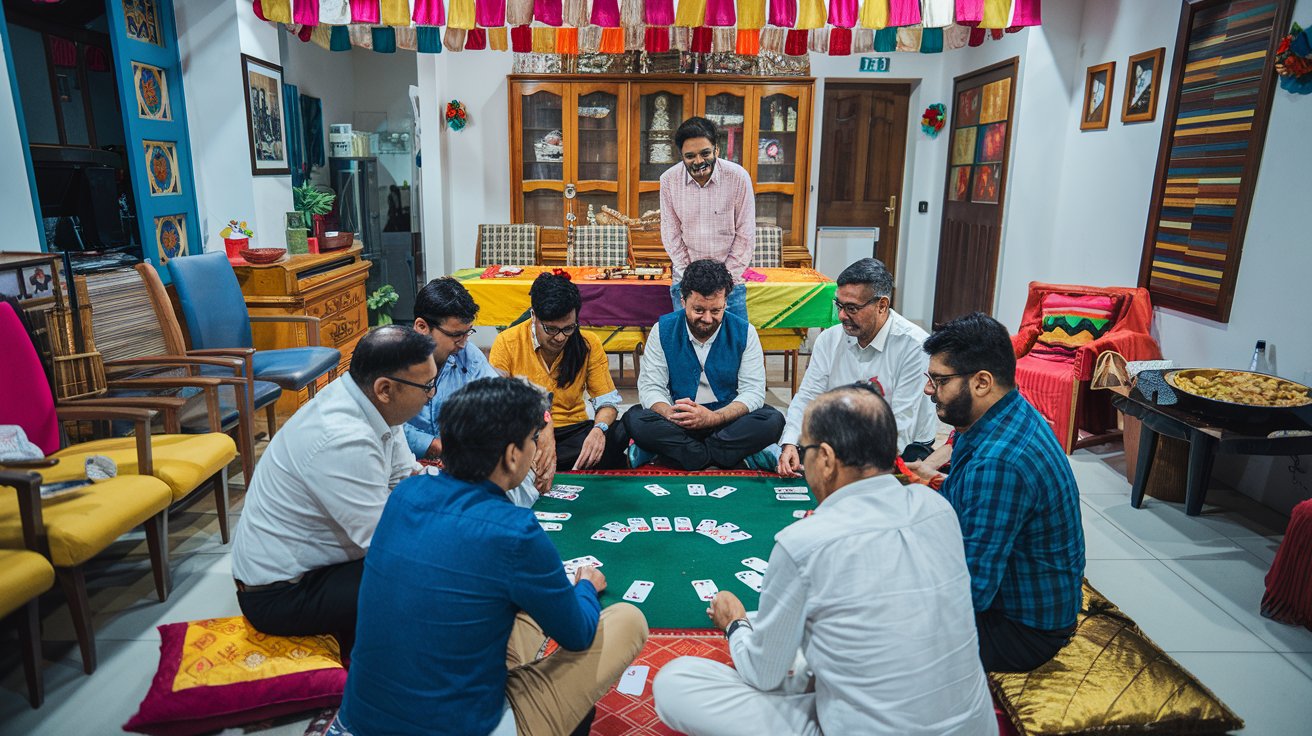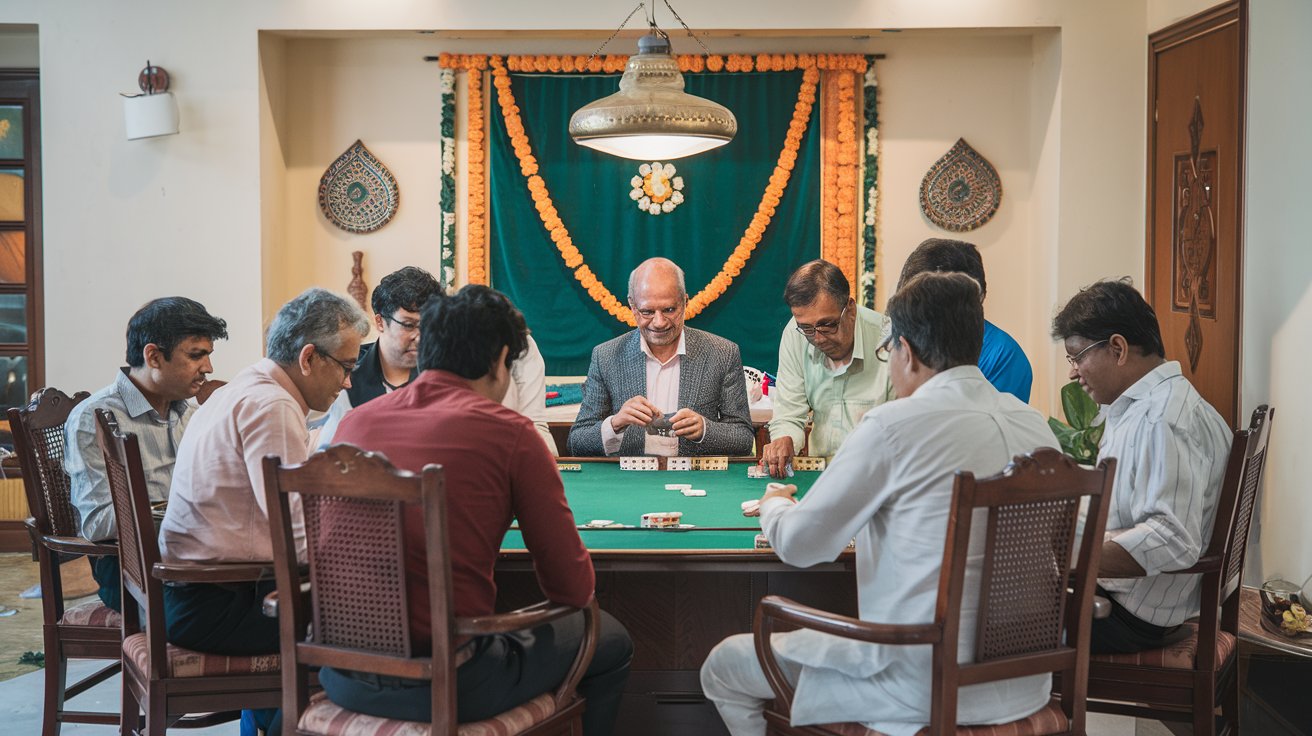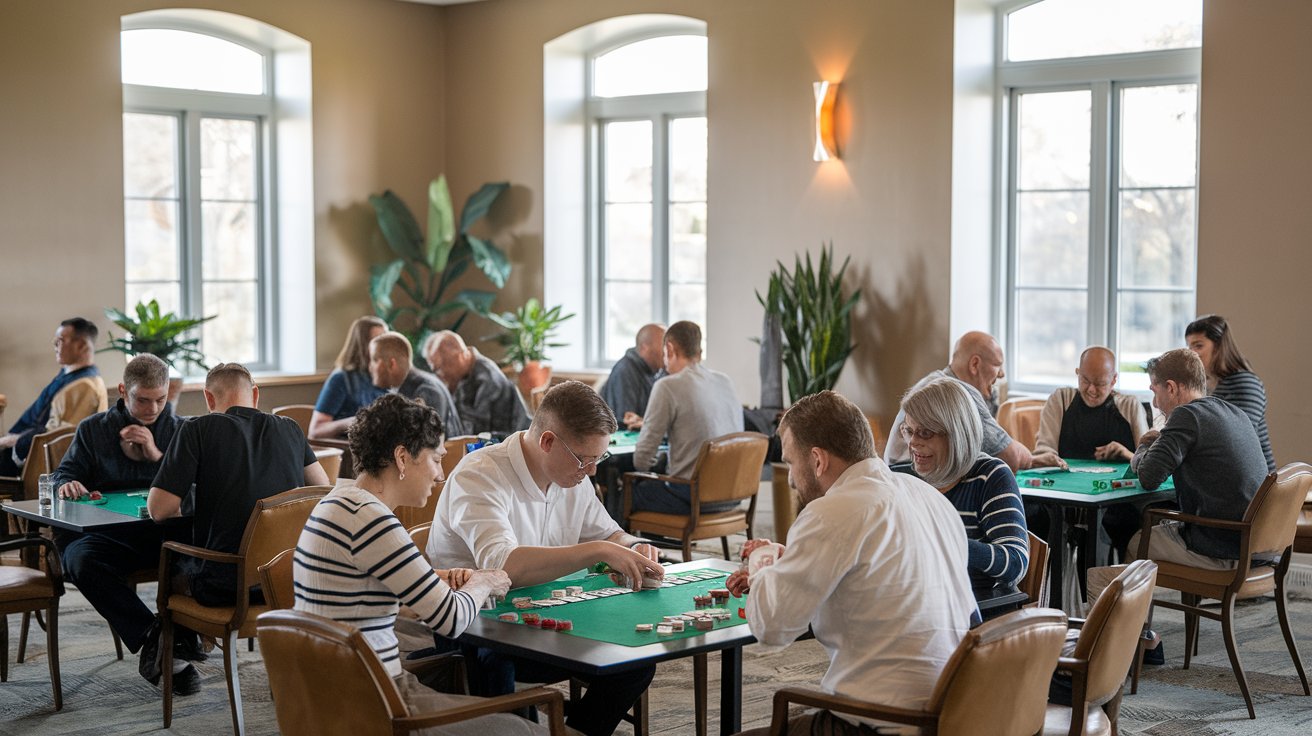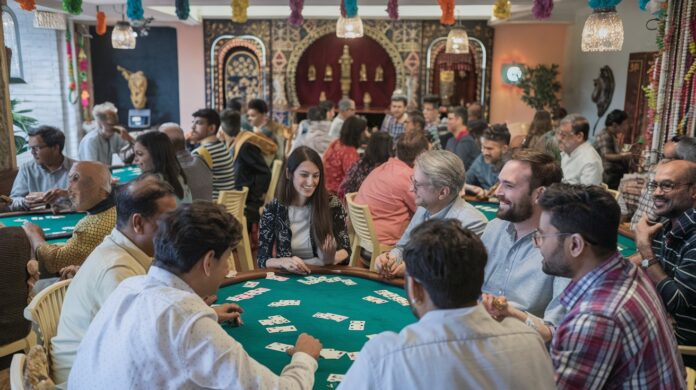When you think of Indian social gatherings, what comes to mind? Perhaps it’s the aroma of spicy snacks wafting through the air, the sound of laughter echoing around a room, or the vibrant chatter of friends and family catching up. Amidst this lively backdrop, one activity has quietly cemented its place as a cultural cornerstone: the card game of rummy. More than just a pastime, rummy has woven itself into the fabric of Indian social life, influencing how people connect, celebrate, and unwind. In this blog, we’ll explore the fascinating role of rummy in Indian gatherings, its historical roots, its modern evolution, and why it remains a beloved tradition in 2025.
A Game Rooted in Tradition

Rummy’s journey in India is a tale of adaptation and affection. While its exact origins are debated—some trace it back to the Spanish game Conquian, others to Chinese card games—it found a welcoming home in India centuries ago. Brought over by traders and colonial influences, rummy evolved into a game that resonated with the Indian ethos of strategy, skill, and social bonding. Unlike games of pure chance, rummy rewards sharp thinking and patience, qualities that align with the values celebrated in Indian culture.
In its early days, rummy was a fixture at family gatherings, especially during festivals like Diwali, Holi, and Pongal. Picture this: a group of cousins huddled around a table, cards in hand, playfully teasing each other as they meld sets and sequences. The stakes might have been modest—perhaps a few coins or bragging rights—but the real prize was the shared experience. Over time, rummy became synonymous with togetherness, a bridge between generations that turned quiet evenings into lively exchanges.
Why Rummy Thrives in Indian Social Settings
What makes rummy such a perfect fit for Indian gatherings? Let’s break it down.
- Accessibility and Simplicity
Rummy’s rules are straightforward enough for beginners to grasp, yet its depth keeps seasoned players hooked. All you need is a deck of cards (or a smartphone in today’s digital age), making it an easy addition to any event. Whether it’s a casual chai session or a grand wedding celebration, rummy fits right in. - A Social Catalyst
In a country as diverse as India, where languages, customs, and cuisines vary widely, rummy acts as a universal language. It transcends barriers, bringing people together in a shared activity. The game sparks conversations, friendly rivalries, and laughter—key ingredients for any memorable gathering. - Skill Over Luck
Indians have a long-standing love for games that blend strategy with fun, from chess to carrom. Rummy fits this mold perfectly. While luck deals the cards, skill determines the winner. This balance keeps players engaged and adds an element of pride to every victory. - Festive Vibes
Diwali, the festival of lights, is incomplete without a rummy session in many households. Known as the “gambling festival,” Diwali embraces card games as a tradition, with rummy often taking center stage. The clinking of coins, the shuffling of cards, and the triumphant cries of “Rummy!” add to the festive cheer.
Rummy’s Evolution: From Living Rooms to Digital Screens

Fast forward to 2025, and rummy has undergone a transformation. While the classic tabletop version still holds sway, the rise of online rummy has taken the game to new heights. Platforms like RummyCircle, Junglee Rummy, and Ace2Three have made it possible for players to enjoy a quick game anytime, anywhere. This digital shift has only amplified rummy’s influence on social gatherings.
Imagine a modern Indian wedding: the sangeet is in full swing, the mehendi is drying, and a group of friends is huddled in a corner, phones in hand, playing an online rummy tournament. Or consider a virtual family reunion—relatives from Mumbai, Delhi, and even abroad logging into a rummy app to reconnect over a few rounds. Technology has expanded rummy’s reach, making it a bridge between the physical and digital worlds.
This evolution hasn’t diluted rummy’s social essence; if anything, it’s enhanced it. Online platforms offer chat features, emojis, and leaderboards, recreating the banter and camaraderie of in-person games. For the younger generation, digital rummy is a way to stay connected with friends and family, even amidst busy schedules.
Rummy’s Role in Strengthening Bonds
At its heart, rummy is more than a game—it’s a bonding ritual. In Indian culture, where relationships are paramount, rummy provides a space for interaction that’s both relaxed and engaging. Grandparents teach grandchildren the tricks of the trade, siblings compete with playful jabs, and friends forge memories over late-night sessions. It’s a game that invites storytelling, laughter, and even the occasional debate over a questionable move.
Take, for example, the post-dinner rummy circle. After a hearty meal of biryani or dosas, families often gather to unwind. The cards come out, and suddenly, the room buzzes with energy. Aunts and uncles recount old tales, cousins strategize together, and the competitive spirit keeps everyone on their toes. These moments, though simple, leave a lasting imprint.
Rummy also fosters a sense of community beyond immediate family. In rural India, village gatherings often feature rummy as a highlight, with neighbors joining in for a friendly match. In urban apartments, it’s not uncommon to see residents organizing rummy nights as a way to break the ice and build friendships.
The Cultural Significance of Rummy in 2025
As we stand in March 2025, rummy’s cultural significance is stronger than ever. It’s a game that adapts to the times while staying true to its roots. The rise of esports and gaming culture has even elevated rummy to a competitive level, with tournaments offering cash prizes and national recognition. Yet, at its core, it remains a social activity that celebrates connection.
Bollywood has played its part too. From classic films like Shree 420 to modern web series, rummy often pops up as a plot device, symbolizing cunning, camaraderie, or celebration. This cinematic nod reflects its deep ties to Indian life, reinforcing its status as a cultural icon.
Interestingly, rummy has also become a subtle teacher of life lessons. Patience, planning, and adaptability—skills honed at the card table—mirror the qualities needed to navigate daily challenges. For many, a rummy game is a microcosm of life itself: you play the hand you’re dealt, but how you play it makes all the difference.
Rummy and Festivities: A Perfect Pair

No discussion of rummy’s influence would be complete without diving into its festive connection. Diwali, as mentioned earlier, is the pinnacle of rummy season. Legend has it that playing cards during Diwali brings good luck, a belief that keeps rummy tables busy well into the night. Families set up makeshift gaming zones, complete with snacks like chakli and laddoos, turning the game into a full-fledged event.
Other festivals, like Raksha Bandhan and Dussehra, also see rummy making an appearance. It’s a way to keep the energy flowing after rituals and feasts, giving everyone a chance to relax and revel in each other’s company. Even smaller occasions—birthdays, housewarmings, or a rainy weekend—often feature rummy as the go-to entertainment.
The Future of Rummy in Indian Social Life
Looking ahead, rummy shows no signs of fading. Its blend of tradition and modernity ensures it remains relevant. As augmented reality (AR) and virtual reality (VR) technologies grow, we might soon see immersive rummy experiences where players feel like they’re sitting at a real table, even if they’re miles apart. Imagine slipping on a VR headset during Diwali 2030 and joining a virtual rummy game with relatives across the globe—the possibilities are endless.
Moreover, rummy’s appeal spans generations. For Gen Z, it’s a trendy online game with a cool factor; for millennials, it’s a nostalgic nod to childhood; and for older adults, it’s a cherished tradition. This multi-generational pull guarantees its longevity.
Tips to Host Your Own Rummy Gathering
Ready to bring rummy into your next social event? Here’s how to make it a hit:
- Set the Scene: Create a cozy vibe with cushions, dim lighting, and a sturdy table. Add some Indian snacks—think samosas, pakoras, or mithai—to keep the mood festive.
- Mix It Up: Include both traditional card games and online rounds to cater to all preferences.
- Keep It Light: Encourage friendly bets (like doing a dance or singing a song) to keep the stakes fun, not stressful.
- Teach the Newbies: If someone’s new to rummy, pair them with a patient pro to guide them through.
Conclusion: Rummy, the Heartbeat of Indian Gatherings
In a fast-paced world where screens often replace face-to-face interaction, rummy stands out as a timeless connector. It’s more than a game—it’s a celebration of relationships, a spark of joy, and a thread in India’s rich cultural tapestry. From dusty village courtyards to sleek urban living rooms, rummy has influenced how Indians come together, creating memories that linger long after the last card is played.
So, the next time you’re at a social gathering, shuffle the deck or open that app. Deal the cards, share a laugh, and let rummy work its magic. After all, in India, no celebration is complete without a round—or ten—of this beloved game.

Zareb Saleh is a journalist at Gulf Today and a ghostwriter for Gameoholic, specializing in gaming, technology, and digital culture. With a keen eye for industry trends, he delivers insightful stories that engage and inform readers.




